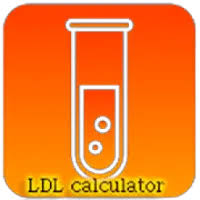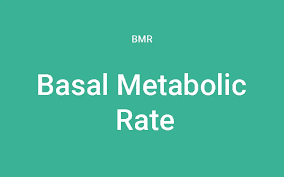Understanding the significance of LDL Calculator is essential for maintaining optimal heart health. By staying informed about your cholesterol levels and making informed choices regarding diet, exercise, and lifestyle factors, you can effectively manage your LDL cholesterol and reduce the risk of heart-related health problems .Check your LDL with our LDL Calculator.In short, it is also called LDL Cal or Calc LDL .
LDL Calculator
[ez-toc]
What Is LDL Cholesterol?
When it comes to heart health, understanding cholesterol is essential. As a critical component of our bodies, cholesterol plays a vital role in numerous functions. However, not all cholesterol is created equal. In this article, we’ll delve into what LDL cholesterol is, its impact on our health, and how to keep it in check for a healthier life.
What is Cholesterol?
Cholesterol is a waxy, fat-like substance found in our body’s cells. It is essential for the production of hormones, vitamin D, and substances that help digest food. Cholesterol travels through the bloodstream in small packages called lipoproteins, which consist of fat (lipid) on the inside and proteins on the outside.
There are two main types of lipoproteins:
Low-density lipoprotein (LDL)
High-density lipoprotein (HDL)
LDL Cholesterol – The “Bad” Cholesterol
LDL cholesterol, often dubbed the “bad” cholesterol, is responsible for carrying cholesterol from the liver to the cells. When there is too much LDL cholesterol in the blood, it can accumulate on the walls of arteries, forming plaque. This buildup can narrow the arteries and limit blood flow, a condition known as atherosclerosis.
Atherosclerosis can lead to several serious health problems, including:
- Coronary artery disease
- Heart attack
- Stroke
- Peripheral artery disease
Factors Affecting LDL Cholesterol Levels
Several factors can influence LDL cholesterol levels, including:
- Diet: Consuming high amounts of saturated fats, trans fats, and cholesterol-rich foods can raise LDL cholesterol levels.
- Weight: Excess body weight can contribute to higher LDL cholesterol levels.
- Exercise: Physical inactivity can lead to elevated LDL cholesterol levels.
- Genetics: Some individuals may have a genetic predisposition to high LDL cholesterol levels.
- Age and Gender: As individuals age, their LDL cholesterol levels tend to rise. Additionally, women’s LDL cholesterol levels may increase after menopause.

How to Calculate LDL?
Understanding your cholesterol levels is vital to maintaining a healthy lifestyle and reducing the risk of heart disease. One key component of this is learning how to calculate your low-density lipoprotein (LDL) cholesterol levels. In this article, we’ll explore the different methods for calculating LDL and provide guidance on interpreting your results to stay on top of your heart health.
Why Measure LDL Cholesterol?
LDL cholesterol, often referred to as the “bad” cholesterol, can accumulate in the walls of your arteries, forming plaque. Excess plaque narrows the arteries and restricts blood flow, leading to an increased risk of heart attack, stroke, and other cardiovascular issues. By monitoring and managing your LDL cholesterol levels, you can take proactive steps to reduce these risks and maintain a healthy heart.
The Traditional LDL Calculation – The Friedewald Formula
The Friedewald formula is the most common method for estimating LDL cholesterol levels. It uses information from a standard lipid panel, including total cholesterol, high-density lipoprotein (HDL) cholesterol, and triglycerides:
LDL cholesterol = Total cholesterol – HDL cholesterol – (Triglycerides ÷ 5)
This formula is typically accurate when triglyceride levels are below 400 mg/dL. However, it may not be as reliable for individuals with very high or very low triglyceride levels.
The Iranian Formula – An Alternative for Calculating LDL
The Iranian formula is an alternative method for estimating LDL cholesterol, designed to address some of the limitations of the Friedewald formula. It is particularly useful for individuals with lower triglyceride and LDL cholesterol levels:
LDL cholesterol = Total cholesterol – HDL cholesterol – (Triglycerides ÷ 2.19)
Direct LDL Measurement
In some cases, your healthcare provider may recommend a direct LDL measurement. This test measures LDL cholesterol levels directly, rather than estimating them through a calculation. Direct LDL measurements can provide more accurate results for individuals with high triglyceride levels or other factors that make the Friedewald formula less reliable.
What Is a Normal LDL Level? – Interpreting Your LDL Cholesterol Results
Once you have calculated or measured your LDL cholesterol levels, it’s important to understand what the results mean. The American Heart Association (AHA) provides the following guidelines for interpreting LDL cholesterol levels:
- Optimal: Less than 100 mg/dL
- Near optimal/above optimal: 100-129 mg/dL
- Borderline high: 130-159 mg/dL
- High: 160-189 mg/dL
- Very high: 190 mg/dL and above
Consult with your healthcare provider to discuss your results and develop an appropriate plan for managing your cholesterol levels.
Calculating and understanding your LDL cholesterol levels is crucial for maintaining optimal heart health. By using formulas like the Friedewald or Iranian formula, or opting for a direct LDL measurement, you can assess your risk for cardiovascular issues and take action to reduce this risk. Remember, always consult your healthcare provider before making significant lifestyle changes or starting new medications. Embrace a heart-healthy lifestyle and take control of your cholesterol today!
What Causes High LDL?
Common Causes of High LDL Cholesterol
Several factors can contribute to high LDL cholesterol levels, including:
- Diet: Consuming high amounts of saturated fats, trans fats, and cholesterol-rich foods can raise LDL cholesterol levels. Foods like red meat, full-fat dairy products, fried foods, and processed snacks can contribute to elevated LDL cholesterol.
- Weight: Excess body weight can contribute to higher LDL cholesterol levels. Losing weight can help lower LDL cholesterol and improve overall heart health.
- Exercise: Physical inactivity can lead to elevated LDL cholesterol levels. Regular exercise can help lower LDL cholesterol and increase high-density lipoprotein (HDL) cholesterol, the “good” cholesterol that helps remove LDL cholesterol from the bloodstream.
- Genetics: Some individuals may have a genetic predisposition to high LDL cholesterol levels. Familial hypercholesterolemia is a genetic disorder that causes high cholesterol levels from a young age and increases the risk of early heart disease.
- Age and Gender: As individuals age, their LDL cholesterol levels tend to rise. Additionally, women’s LDL cholesterol levels may increase after menopause.
- Medical conditions: Certain medical conditions, such as diabetes, hypothyroidism, and kidney disease, can contribute to high LDL cholesterol levels.
- Medications: Some medications, like certain beta-blockers, diuretics, and hormonal therapies, can cause an increase in LDL cholesterol levels.
Prevention Strategies for High LDL Cholesterol
To reduce your risk of high LDL cholesterol and maintain a heart-healthy lifestyle, consider the following strategies:
- Adopt a heart-healthy diet: Focus on consuming foods low in saturated and trans fats, and incorporate whole grains, fruits, vegetables, and lean protein sources into your meals.
- Exercise regularly: Engage in at least 150 minutes of moderate-intensity aerobic activity per week, such as brisk walking, cycling, or swimming.
- Maintain a healthy weight: Losing excess weight can help lower LDL cholesterol levels and improve overall heart health.
- Quit smoking: Smoking can negatively impact cholesterol levels and overall heart health. Quitting smoking can improve your cholesterol profile and reduce the risk of heart disease.
- Regular check-ups: Schedule regular check-ups with your healthcare provider to monitor your cholesterol levels and discuss any necessary adjustments to your lifestyle or medications.
Understanding the causes of high LDL cholesterol is essential for maintaining optimal heart health. By addressing these factors through informed choices about diet, exercise, and other lifestyle factors, you can effectively manage your LDL cholesterol levels and reduce your risk of heart-related health problems.
What Are the 5 Signs of High LDL Cholesterol?
Five Warning Signs of High LDL Cholesterol
It’s important to note that high LDL cholesterol often presents no noticeable symptoms. However, there are some warning signs that may indicate elevated cholesterol levels or related health concerns:
- Familial history of high cholesterol or heart disease: If you have a family history of high cholesterol, early heart disease, or stroke, you may be at a higher risk for elevated LDL cholesterol levels.
- Obesity or being overweight: Excess body weight can contribute to high LDL cholesterol levels. If you are overweight or obese, it’s important to monitor your cholesterol levels and work towards a healthy weight.
- Sedentary lifestyle: Physical inactivity can lead to elevated LDL cholesterol levels. If you don’t engage in regular physical activity, you may be at a higher risk for high LDL cholesterol.
- Unhealthy diet: Consuming high amounts of saturated and trans fats, as well as cholesterol-rich foods, can contribute to high LDL cholesterol levels. If your diet consists of processed foods, fried foods, red meat, and full-fat dairy products, you may be at a higher risk for elevated LDL cholesterol.
- Presence of xanthomas: Xanthomas are fatty deposits that can form under the skin, typically near joints, tendons, or the eyes. While not a direct sign of high LDL cholesterol, xanthomas can indicate a lipid disorder, which may be accompanied by elevated cholesterol levels.
Taking Action for a Healthier Heart
If you suspect that you may have high LDL cholesterol, it’s crucial to consult with your healthcare provider. They can perform a blood test to measure your cholesterol levels and recommend appropriate lifestyle changes or medications to help manage your cholesterol. Consider the following steps to improve your heart health:
- Schedule regular cholesterol screenings: Regular screenings can help detect high LDL cholesterol levels early, allowing you to take action to reduce your risk of heart disease.
- Adopt a heart-healthy diet: Focus on consuming foods low in saturated and trans fats, and incorporate whole grains, fruits, vegetables, and lean protein sources into your meals.
- Exercise regularly: Engage in at least 150 minutes of moderate-intensity aerobic activity per week, such as brisk walking, cycling, or swimming.
- Maintain a healthy weight: Losing excess weight can help lower LDL cholesterol levels and improve overall heart health.
- Quit smoking: Smoking can negatively impact cholesterol levels and overall heart health. Quitting smoking can improve your cholesterol profile and reduce the risk of heart disease.
How to Manage LDL Cholesterol Levels
To keep LDL cholesterol levels in check, consider the following tips:
- Maintain a heart-healthy diet: Focus on consuming foods low in saturated and trans fats. Incorporate whole grains, fruits, vegetables, and lean protein sources into your meals.
- Exercise regularly: Aim for at least 150 minutes of moderate-intensity aerobic activity per week.
- Maintain a healthy weight: Losing excess weight can help lower LDL cholesterol levels.
- Quit smoking: Smoking can negatively impact cholesterol levels and overall heart health.
- Medications: In some cases, your doctor may prescribe medication to help manage your LDL cholesterol levels.
Understanding LDL cholesterol and its impact on our health is essential for maintaining a healthy lifestyle. By making informed choices about diet, exercise, and other lifestyle factors, you can effectively manage your LDL cholesterol levels and reduce the risk of heart-related health problems. Always consult with your healthcare provider before making any significant changes to your lifestyle or starting a new medication.
What Should I Do if My LDL Is High?
High levels of low-density lipoprotein (LDL) cholesterol can increase your risk of heart disease, heart attack, and stroke. If you’ve discovered that your LDL cholesterol is high, it’s essential to take action to lower it and protect your heart health. In this article, we’ll discuss effective strategies for managing high LDL cholesterol and promoting a healthier lifestyle.
Understanding High LDL Cholesterol
LDL cholesterol, often referred to as “bad” cholesterol, can accumulate in the walls of arteries, forming plaque. When arteries become narrow due to plaque buildup, blood flow is restricted, increasing the risk of cardiovascular issues. Lowering high LDL cholesterol levels can help reduce these risks and support a healthier heart.
Lifestyle Changes to Lower LDL Cholesterol
Making lifestyle changes is the first step in lowering high LDL cholesterol levels. Consider the following recommendations:
- Adopt a heart-healthy diet: Focus on consuming foods low in saturated and trans fats. Incorporate whole grains, fruits, vegetables, and lean protein sources, such as fish and poultry, into your meals. Include foods rich in soluble fiber and plant sterols, which can help reduce LDL cholesterol levels.
- Exercise regularly: Engage in at least 150 minutes of moderate-intensity aerobic activity per week, such as brisk walking, cycling, or swimming. Regular exercise can help lower LDL cholesterol and improve overall heart health.
- Maintain a healthy weight: Losing excess weight can help lower LDL cholesterol levels. Aim for a gradual weight loss of 1-2 pounds per week through a combination of healthy eating and physical activity.
- Quit smoking: Smoking can negatively impact cholesterol levels and overall heart health. Quitting smoking can improve your cholesterol profile and reduce the risk of heart disease.
Medications for Lowering LDL Cholesterol
In some cases, lifestyle changes alone may not be enough to lower high LDL cholesterol levels. Your healthcare provider may prescribe medication to help manage your cholesterol, such as:
- Statins: These medications help reduce LDL cholesterol levels by inhibiting an enzyme in the liver responsible for cholesterol production.
- Bile acid sequestrants: These drugs bind to bile acids in the intestines, preventing their reabsorption and promoting the elimination of cholesterol.
- Cholesterol absorption inhibitors: This class of medications, such as ezetimibe, works by blocking the absorption of cholesterol in the intestines.
- PCSK9 inhibitors: These injectable medications help lower LDL cholesterol by increasing the liver’s ability to remove LDL cholesterol from the bloodstream.
Always consult with your healthcare provider before starting any new medications.
Monitoring Your Progress
Regularly monitoring your cholesterol levels is essential for assessing the effectiveness of your LDL-lowering strategies. Work with your healthcare provider to establish a monitoring schedule and discuss any adjustments to your plan as needed.
Lowering high LDL cholesterol is crucial for maintaining optimal heart health and reducing the risk of cardiovascular disease. By making informed choices about diet, exercise, and other lifestyle factors, and working with your healthcare provider to determine if medications are necessary, you can effectively manage your LDL cholesterol levels. Remember to consult with your healthcare provider before making any significant lifestyle changes or starting a new medication. Take charge of your heart health and lower your LDL cholesterol today!
Frequently Asked Questions (FAQ)
1. What is LDL Cholesterol?
Low-Density Lipoprotein (LDL) cholesterol, often referred to as “bad” cholesterol, is a type of cholesterol that carries cholesterol particles from the liver to the cells throughout the body. Elevated LDL levels are associated with an increased risk of heart disease.
2. Why is LDL Cholesterol important for health?
LDL Cholesterol is significant because high levels of LDL can lead to the buildup of plaque in the arteries, increasing the risk of atherosclerosis and cardiovascular diseases such as heart attacks and strokes.
3. What is an LDL Calculator or LDL Cal?
An LDL Calculator, sometimes referred to as LDL Cal, is a tool used to estimate or calculate LDL cholesterol levels. It helps individuals and healthcare professionals assess their cholesterol profile and heart disease risk.
4. How does an LDL Calculator work?
An LDL Calculator typically takes into account a person’s total cholesterol, high-density lipoprotein (HDL) cholesterol, and triglyceride levels to estimate LDL cholesterol. The calculation is based on established formulas that provide an approximation of LDL cholesterol levels.
5. Are LDL Calculator accurate?
While LDL Calculators provide a convenient estimate of LDL cholesterol, they may not be as accurate as laboratory tests. For precise measurements, a blood test is recommended. However, LDL Calculators can serve as useful tools for quick assessments and tracking trends.
6. How often should I use an LDL Calculator?
The frequency of using an LDL Calculator depends on your individual health needs and risk factors. If you have high cholesterol or are monitoring your cholesterol levels, you may use it periodically to track changes and trends.
7. Can I use an LDL Calculator to replace a blood test?
An LDL Calculator can provide estimates, but it should not replace regular cholesterol blood tests conducted by healthcare professionals. Blood tests offer more accurate and comprehensive cholesterol profiles.
8. How can I lower my LDL cholesterol levels?
Lifestyle modifications, such as adopting a heart-healthy diet, increasing physical activity, and quitting smoking, can help lower LDL cholesterol levels. In some cases, medication may be prescribed by a healthcare provider.
9. What are the recommended LDL cholesterol levels?
The optimal LDL cholesterol level varies depending on individual risk factors and health conditions. In general, lower LDL cholesterol levels are considered better for heart health. Your healthcare provider can determine your target LDL level.
10. Are there natural ways to reduce LDL cholesterol?
Yes, several natural methods can help lower LDL cholesterol levels, including dietary changes, such as consuming more fiber and plant sterols, increasing physical activity, maintaining a healthy weight, and avoiding trans fats and excessive saturated fats.
11. How can I interpret the results from an LDL Calculator?
Results from an LDL Calculator will typically provide an estimated LDL cholesterol level. You can interpret these results in conjunction with other cholesterol levels and risk factors to assess your overall heart disease risk. Consulting a healthcare provider for a comprehensive evaluation is advisable.
Conclusion
Understanding the significance of “ldl cal” and “calc ldl” is essential for maintaining optimal heart health. By staying informed about your cholesterol levels and making informed choices regarding diet, exercise, and lifestyle factors, you can effectively manage your LDL cholesterol and reduce the risk of heart-related health problems. Always consult with your healthcare provider before making any significant changes to your lifestyle or starting a new medication. Take charge of your heart health today!





